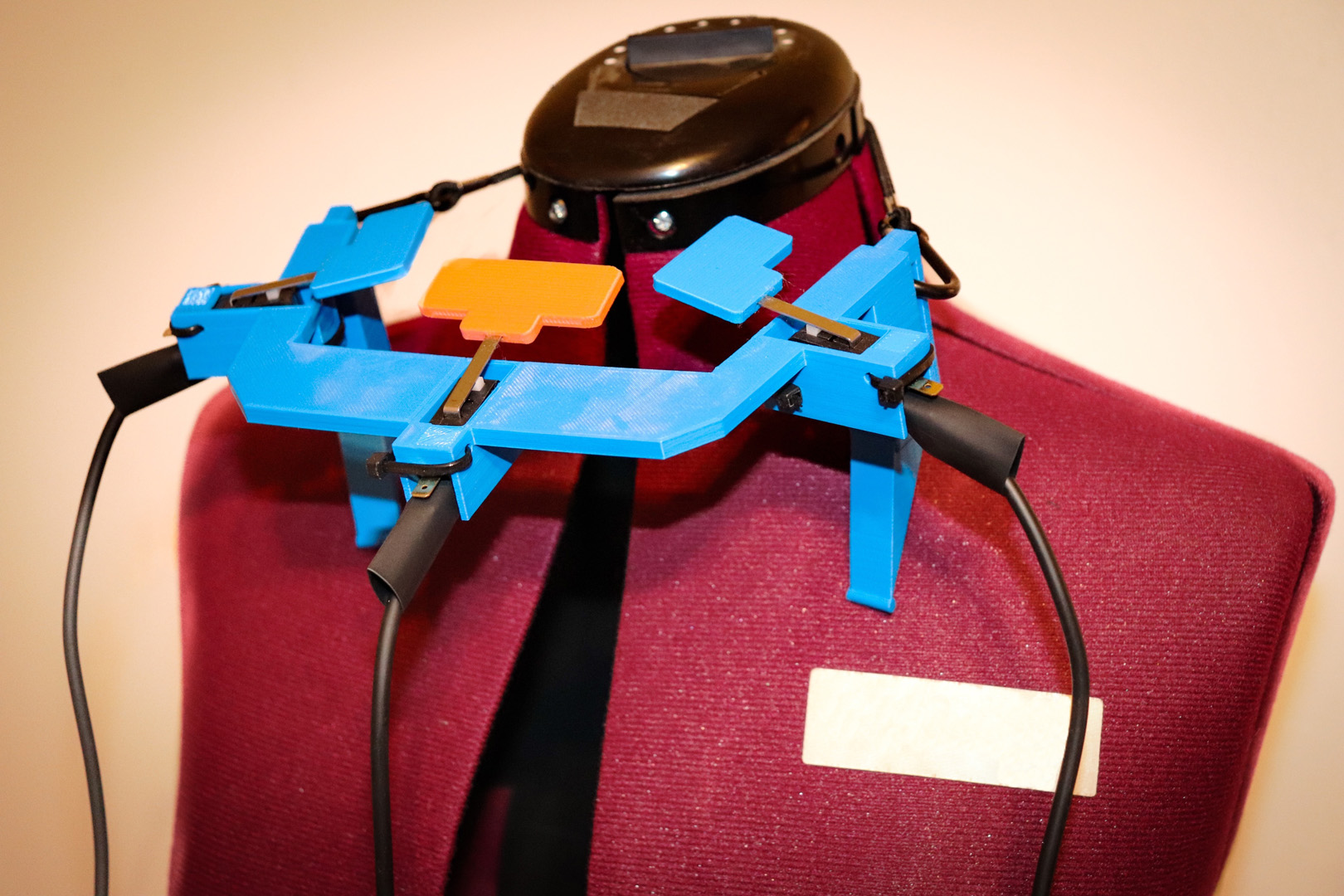“Chin Interfaces for Peripheral Interaction” by Ables
Conference:
Experience Type(s):
Labs Type(s):
Title:
- Chin Interfaces for Peripheral Interaction
Program Title:
- Labs Installations
Organizer(s)/Presenter(s):
Description:
The chin interface is a one, two, or three button wearable device that allows for peripheral interaction during everyday activities. Simple sensors and software take predictable and unpredictable movement data generated from activities like eating, exercising, practicing guitar, or using the computer to activate peripheral screens directed through the chin.
References:
[1]
Brandon W. Ables. 2018. Chin Music. Retrieved from https://bwables.com/chin-music
[2]
Brandon W. Ables. 2020. One Man Trance. MFA thesis. University of Maryland, Baltimore County, Baltimore, Maryland.
[3]
Monica Anderson. 2015. Smartphone, computer or tablet? 36% of Americans own all three. Retrieved December 15, 2023 from https://www.pewresearch.org/short-reads/2015/11/25/device-ownership/#:?:text=As%20the%20world%20grows%20increasingly,and%2036%25%20own%20all%20three.
[4]
Saskia Bakker. 2016. Introduction: Framing Peripheral Interaction in Peripheral Interaction: Challenges and Opportunities for HCI in the Periphery of Attention, ed. Saskia Bakker, Doris Hausen, and Ted Selker (Switzerland: Springer, 2016), 1-10.
[5]
David Bellos. 2010. Mathematics, poetry, fiction: The adventure of the Oulipo. BSHM Bulletin: Journal of the British Society for the History of Mathematics, 25(2), 104?118. https://doi.org/10.1080/17498430903489237
[6]
Paul Dourish. 2001. Where the Action Is: The Foundations of Embodied Interaction. (1st ed.) The MIT Press, Cambridge, Massachusetts. https://doi.org/10.7551/mitpress/7221.001.0001
[7]
Lars Halln?s and Johan Redstr?m. 2001. Slow Technology ? Designing for Reflection. Personal and Ubiquitous Computing, 5(3), 201?212. https://doi.org/10.1007/PL00000019
[8]
Michael Martin. 2021. Computer and Internet Use in the United States, 2018. Retrieved December 15, 2023 from https://www.census.gov/library/publications/2021/acs/acs-49.html
[9]
E.J. Masicampo and Roy F. Baumeister. 2011. Consider it done! Plan making can eliminate the cognitive effects of unfulfilled goals. Journal of Personality and Social Psychology, 101(4), 667?683. https://doi.org/10.1037/a0024192





